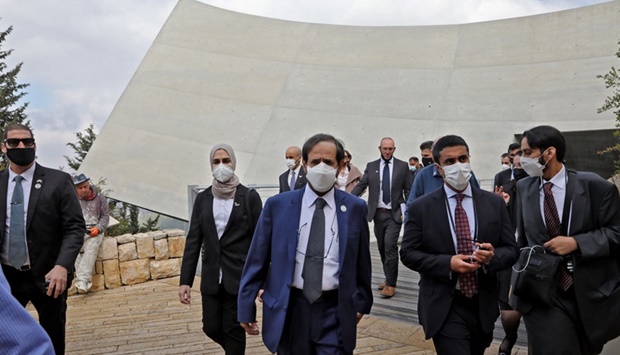Three members of the United Arab Emirates' Federal National Council visited Israel's parliament Monday, becoming the first Emirati delegation there since the US-brokered normalisation of ties in 2020.
"When we talk about Abraham Accords agreements, we want you to look at the big picture," Ali Rashid al-Nuaimi, chairman of the council's defence, interior and foreign affairs committee, said at the Israeli foreign and defence committee.
"It's not a political agreement only, it's not an issue related to security and defence issue. No, it is an agent of change for the whole region," Nuaimi said, advocating "full engagement in all sectors".
Prior to the visit to the Knesset, the Emirati delegation visited Yad Vashem, Israel's Holocaust memorial.
The UAE became the third Arab nation to normalise ties with Israel after Egypt and Jordan, a move that angered the Palestinians as it recognised the Jewish state before the establishment of a Palestinian one.
Nuaimi said that after the 2021 war between Israel and Hamas, the Islamist rulers of Gaza, "people were questioning what will happen to the Abraham Accords," the name of the agreements brokered under the Donald Trump admiistration
"I want everyone to know there is no way back, we are moving forward, we are not repeating history, we are writing history," he said.
Ram Ben Barak, head of the Israeli foreign and defence committee hosting Nuaimi as well as fellow Federal National Council members Sara Falaknaz and Marwan Almheiri, called his guests "neighbours and brothers".
"There's a misconception, as though the normalisation agreement was based on just one element, of shared threats and challenges, but that's the smallest part of the deal," he said.
"Israel is committed to the agreement and plans on enhancing and expanding it in all fields."
Bahrain and Morocco have also normalised ties with Israel under the accords. Sudan has agreed to do so, but formal diplomatic relations have not yet emerged amid escalating instability in Khartoum.

